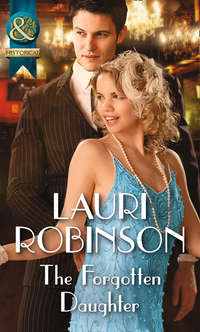
Полная версия
Saving Marina

When it all ended abruptly—the colors, the enchantment, the kiss—her head was spinning.
Reaching for something to hold on to, her hands found Richard’s. The moment his fingers grasped hers the spinning stopped, but the light inside her didn’t fade.
“Marina?”
She shook her head, trying to remember where she was, who she was. As that all became clear, she asked, “Why did you do that? Why did you kiss me?”
“I don’t know,” he said, dropping her hands. “I shouldn’t have. Forgive me.”
Marina closed her eyes briefly, still trying to make sense of what had happened—not the kiss or his apology, but the change inside her. Everything about her was warm and bright.
“It’s you,” he said roughly. “You’ve put some sort of spell on me.”
Author Note
There are many myths behind the Salem Witch Trials—including stories shared within my own family.
I’d heard for years that there were ‘witches’ on my paternal grandmother’s side of the family, but it wasn’t until my son was digging deep into an online ancestry programme that I actually researched any of those stories. It turns out that my eighth great-grandmother was accused and imprisoned for being a witch. However, she never stood trial because her son-in-law petitioned for her release and paid her bail. He also promised to return her to the courts for trial within a few months, but that didn’t happen because the trials ended almost as swiftly as they started. I say ‘swiftly’ only in reference to a period of time, because I can only imagine that for the people who lived through this horrific event their lives were changed for ever.
Upon researching and reading many different viewpoints of the cause and effects of the trials, I was so captivated I decided to write a story set in that era. I used bits and pieces from my research, but Saving Marina is purely a fictional story. A tale of a sea captain and a woman who has been led to believe she’s a witch. I hope you enjoy Richard and Marina’s story as much as I enjoyed creating their journey to happily-ever-after.
Saving Marina
Lauri Robinson

www.millsandboon.co.uk
A lover of fairy tales and cowboy boots, LAURI ROBINSON can’t imagine a better profession than penning happily-ever-after stories about men (and women) who pull on a pair of boots before riding off into the sunset—or kick them off for other reasons. Lauri and her husband raised three sons in their rural Minnesota home, and are now getting their just rewards by spoiling their grandchildren.
Visit: laurirobinson.blogspot.com, facebook.com/lauri.robinson1, twitter.com/laurir.
To my Johnson aunts:
Mable, Violet, Pat, Linda and Faye.
Contents
Cover
Introduction
Author Note
Title Page
About the Author
Dedication
Chapter One
Chapter Two
Chapter Three
Chapter Four
Chapter Five
Chapter Six
Chapter Seven
Chapter Eight
Chapter Nine
Chapter Ten
Chapter Eleven
Chapter Twelve
Chapter Thirteen
Chapter Fourteen
Chapter Fifteen
Chapter Sixteen
Chapter Seventeen
Chapter Eighteen
Chapter Nineteen
Chapter Twenty
Epilogue
Extract
Copyright
Chapter One
Massachusetts, 1692
“Thou shalt not suffer a witch to live.”
Exodus 22:18, King James Version
The beast of burden beneath Richard Tarr was aptly labeled. With a broad, short back and powerful hindquarters, the horse was more suited for labor than riding. No amount of prodding could urge the massive brown steed into a pace faster than the jarring trot that had threatened to rattle the teeth right out of his mouth. Appreciating the teeth that had never given him any trouble, Richard resigned himself to letting the animal trod along. Unused to such travel, Richard found the saddle awkward, and the hot summer sun had sweat trickling down his back. All of it, the horse, the heat, the very mission, spurred his frustration.
His own two feet would have been faster. Or a rowboat. That would have been his choice. Water travel was in his blood, even when his feet were on solid ground.
A boat hadn’t been an option, not unless he’d wanted to portage across several miles of swamp. Therefore, he was atop the dull brown beast, plodding along as if time made no difference.
He’d traveled this land route before, the road of less than twenty miles that led from the Boston Harbor to the village of Salem. It was a long and lonely trek, and he was accompanied only by a dark dread that sat in his gut like a sleeping giant awaiting an opportunity to wake. Stretching and yawning, the giant seemed to take great pleasure in rising from an eternal sleep to trouble Richard’s mind and soul. Sometimes it was for no more than a flickering second; other times it would fully wake and haunt him for hours, never remembering its presence did not need to be verified.
That sleeping giant had taken root years ago, and though Richard chose to believe it rested comfortably while he was at sea, his soul knew differently. It knew he’d made a choice based on carnal and selfish needs and that the outcome of it had left a heavy grudge inside him. Therefore, the inner part of him that housed the sleeping giant relentlessly assured Richard he’d never know complete peace again.
This, he thought as the horse clip-clopped over a crusted trail sprouting barely a blade of grass, is my punishment. My sentence, and I have no choice but to abide by it as if it were decreed upon me by the king of England.
The child wasn’t to blame. No child ever was. He’d come to accept that years ago. Born a seaside waif, he’d never known his parentage. Never knew how he came to be living on the streets of London, stealing scraps of bread and drinking from rain barrels. Those were his earliest memories. Whether he actually remembered those incidents or whether they’d been placed in his memory by Captain Earl Burrows, Richard wasn’t sure. Earl claimed Richard had been about five when Earl found him scavenging along the docks. Although not known for deeds of charity, Captain Burrows had taken Richard aboard his ship. Perhaps Earl had figured that was the only act of benevolence he needed to provide. Either way, some twenty-odd years ago, Richard had begun his life of sailing. He rose up the ranks from cabin boy, and five years ago, when Earl knew his days were numbered, the captain turned over the love of his life, the Concord, to Richard.
All his years at sea had played well in Earl’s favor, and that too had been bequeathed upon Richard. The Concord was but one sea vessel—albeit his favorite—in his fleet, which sailed from England to the colonies, then on to the West Indies and Spain before returning to England. The fleet served Richard well and would continue to for years to come.
The trail upon which the horse trod widened, suggesting they would soon arrive at their destination. Bracing himself, for he knew the inner giant would soon stir, Richard scanned the horizon. Blocked by trees, it was nothing like the image he was used to seeing, where if a man didn’t know better, he might believe he’d sail right over the edge of the world. From the deck of the Concord, the horizon was always a glorious sight. Water as far as one could see—an image that always stirred the part of his soul he did know. The part of him that relished his life at sea. The life he was born to live.
That wasn’t so today. Around the bend would be a village. The one after that was where he would collect his daughter. A child spawn from his loins and born on land after he’d taken to sea again.
His breath tightened in his chest, and he transferred the reins to his other hand in order to dig into his shirt pocket for the crisp slip of paper. It was a brief note, simply stating the death of his wife and where his daughter was awaiting his imminent arrival. A daughter he had no idea what he would do with other than collect. That much he understood as his duty.
Without guidance from him, the horse rounded the corner. Then the heavy hooves stopped, and everything about Richard went still as he lifted his gaze.
The horse stomped and tossed its broad head, sensing the death Richard’s eyes had locked onto. A single large and gnarly tree stood upon a hill on the edge of town, next to a rocky cliff that bespoke an ominous aura even as the summer sun shone above. Off the lowest branches hung several ropes and at the end of those ropes was the most catastrophic sight his eyes had ever gazed upon.
Eight—he counted them twice—bodies dangled eerily. Although he was a distance away, it was apparent the poor souls, whoever they may have been, had their hands tied behind their backs and their legs bound.
Closing his eyes, questioning the sight, Richard drew a breath before lifting his lids again. The image hadn’t changed. If anything, it appeared darker, more sinister. A curse rumbled deep in his throat. The majority of the bodies were clothed in dresses.
A shiver crawled up his spine at the evil gloom that seemed to penetrate the entire hilltop and block the otherwise bright sunlight from shining down upon that singular tree.
It was then he noticed the crowd gathered lower on the hill. Not on the rocky side, but the grassy side that gently sloped downward and eventually opened up into the village green of the community. A plethora of sounds reached him, or perhaps they had always been there and he’d been deaf to them, too stunned by the sight to take in more.
The horse tossed his head again and took a step backward, as if unwilling to go any closer. Richard didn’t blame the animal. There wasn’t crying or protests. Instead, an almost joyous chant echoed through the air. As if the bodies swinging from the tree were a glorious sight to behold.
Richard reined in the horse to keep it from twisting about. In doing so, the note crinkled in his hand. Once the horse was settled, he flattened the paper on his thigh before holding it up to read where his daughter would be located. Urgency arose inside him. The sooner he completed his business, the better. He’d entered corrupt ports during his voyages and instinctively knew this place hosted a sinister core.
Staying near the outskirts of Salem, as far from the hill as possible, he steered the steed onward. With little more than a tap of his heel, the horse’s speed increased, putting distance between them and the hill. Like him, the animal was leery of entering the town.
The note described a large home between Salem Towne and Salem Village. The two were no more than five miles apart and, as he’d learned before, very separate communities. One more welcoming than the other. However, the spectacle he’d just witnessed had him wondering if his recollection was correct.
Not that it mattered. He’d leave both villages before nightfall and never return.
A short distance later, he crossed a bridge. On the other side farms scattered the road, some close by, some set back. Locating the one he was looking for among the smaller, more crudely constructed homes became an easy task. It stood out, if only because of its size.
Richard rode to the back side of the house, where a water trough would quench the animal’s thirst and hopefully keep it occupied while he gathered his daughter. He was thankful the tree upon that rocky hill was miles behind him and far from sight, yet he couldn’t help but turn in the direction from which he’d traveled, wondering again if he’d truly witnessed what his mind continued to recall. The roadway had been empty, the yards and houses along the way quiet, which added to the growing foreboding inside him.
With the horse secure and drinking, Richard made his way around the house to the wooden stoop of the front door. It was indeed a large home. Whitewashed and rectangular in shape and shaded by tall trees. The steeply pitched roof framed two tall and wide gables, and the sunlight glistened against the four symmetrical windows on both floors.
A long, narrow awning shadowed the stoop, blocking the sunlight from shining on the windowless door. Richard raised a hand to knock, but the door opened inward before his knuckles touched the wood.
“State your business.”
The woman’s tone didn’t match her structure. She was tiny, with a mass of curls as golden as the sun rays on his shoulders. The straps of her stiff cap were tied beneath her chin, leaving the curls to burst out from beneath the cloth like a bundle of wool tied in the middle. He’d expected an old woman, not one with skin as milky white as her linen cap.
“I’m looking for—” His mind went momentarily blank. Lifting the note still clutched in one hand, he scanned it for the name at the bottom.
“Step inside, Captain,” she said briskly.
Richard made no attempt to move. Having noted the signature on the paper, he stated, “I’m looking for Mrs. Lindqvist. Mrs. Marina Lindqvist.”
“I’m Marina Lindqvist,” she answered, stepping aside while moving her arm in a graceful wave to indicate he should cross the threshold. “Your daughter is here. Please enter.”
An unusual chill rippled his spine. His daughter. Richard had acknowledged he had a daughter. A small infant the one and only time he’d laid eyes on her. Yet having this woman say it aloud made the child more real than his own thoughts ever had. “I’m here to collect her,” he said, not taking a step forward. “To take her back to Boston. If you’d be so kind as to call to her, we’ll be on our way.”
“That’s impossible. Do come in.”
Richard refused to take a step. “How can that be impossible? Your note said I was to collect her posthaste.”
“I’d prefer not to stand on the stoop and discuss this matter, sir. It requires more privacy than that.”
The sharpness of her tone couldn’t cover how her voice shook; nor did it hide the apprehension shimmering in her blue eyes. When she shot a nervous glance around his frame, he instantly recalled the sinister hillside and revolting tree. Anger rose, burning his throat as he growled, “What kind of trap have you set here? Where is my daughter?”
“There’s no trap,” she insisted. “Your daughter is here. Just, please, enter before you are seen.”
An uneven clip echoed inside the house, drawing his attention beyond the woman.
A short man with a wooden leg crossed the room. “She speaks the truth, Captain. Enter swiftly. I swear on my sailor’s oath there is no trap set in this house. However, I give no promise for what lies beyond my yard.”
The blood in his veins turned so cold Richard tightened his shoulders to ward off a shiver. He held no doubt the man was a sailor. His aged face was leathered from the sun and sea, and the lower part of his left leg, now a wooden stick, had been carved from a ship’s rail. Only a man of the ocean might recognize that, and only another would know the severity of swearing upon his sailor’s oath.
The woman moved farther to the side, giving him a wider entrance path. “Please, for your daughter’s sake, I beg you to enter.”
Her whisper sounded as if it could shatter as easily as glass at any moment. Richard crossed the threshold, and since the woman was no longer next to the door, he closed it behind him. “Where’s my daughter?” he demanded. Once he had the child in his arms, he’d mount up and whip that beast of a horse into a gallop the likes of which his kind had never known.
The old sailor stepped forward, his hand held out, not in courtesy but something that went deeper considering the sincerity of his gaze. “My name is William Birmingham, once the captain of the Golden Eagle. This is my niece, Miss Marina Lindqvist.”
“I’ve heard of you,” Richard acknowledged and shook the man’s hand. There was barely a ship or a captain that had sailed the oceans that he hadn’t heard of.
“As I have of you and your predecessor,” William said. “Captain Burrows and I sailed together years ago, on a Queen’s ship.”
Earl Burrows wasn’t remembered for his friendships or deeds of goodwill. However, Richard owed the man for everything he had, including his very life, and would forever remain devoted. At this point in time, he moved beyond whatever William might think of Earl and repeated, “Where is my daughter?”
William nodded toward the woman. “Marina, take the good captain up to see Gracie.”
Without a word, the woman turned about and headed toward the staircase on the far side of the room. Richard followed but eyed his surroundings. The furniture was sparse considering the size of the room. A long wooden bench and a couple of chairs with high backs and tapestry seat cushions, a desk with another chair. Several small tables were positioned throughout the area holding vases of wildflowers or candles. A Bible sat upon the table near the fireplace, pages open. The intricate carvings on the bulky furniture said it wasn’t homemade. Most likely the pieces had been hauled to the colonies on one of the ships William used to captain. If recollection served right, Birmingham had sailed passenger ships, people bound for the New World, but the holds would have been full of cargo, all the items those same passengers would need to start their new lives.
Richard glanced down a hallway as he started up the steps. A table surrounded by chairs suggested the kitchen was at the end of the hall. Again, the furniture wasn’t built of square wooden planks like that in the home he’d once visited in Salem Village. Briefly, for he really didn’t care, he wondered about all the furniture he’d had delivered to his wife’s family’s home. Expensive, solid pieces, for he’d never shied away from providing for his daughter.
The open-beam ceiling supporting the floor above grew near as he climbed the steps. The stairs turned a corner then, blocking the ground floor. Richard’s gaze landed on the skirt trailing each step ahead of him. The dull gray of homespun cloth went all the way up to her waist, where it was gathered and disappeared beneath the black formfitting sleeveless waistcoat over her white peasant shirt. The fashionable gowns worn elsewhere, including parts of America, were not welcome in this community. He’d discovered that on his last trip here. Just as he’d discovered he wasn’t welcome.
“I beg you to keep your voice soft,” the woman stated after they’d climbed the stairs and traversed a narrow hall with windows at both ends. She paused near a door, her hand on the knob. “Gracie frightens easily.”
He’d known the child had been given the name Grace upon birth but, until this moment, hadn’t thought of her as anything other than his daughter. Growing impatient with himself—and everything else, for that matter—Richard gestured for the door to be opened.
A beam of sunlight shone directly upon a bed of such a large size that the tiny child lying upon it was almost invisible. Her body was so small the blankets looked merely wrinkled. If not for the dark hair on the pillow, he’d have thought the bed empty.
The woman walked to the side of the bed. Richard followed, choosing the opposite side.
“Gracie,” the woman whispered, leaning down and brushing tendrils of hair off the child’s face. “Your papa’s here.”
There was a shift beneath the bedcovers as the child rolled onto her back. Her eyelids, which were edged by long, dark lashes, lifted, exposing big brown eyes. Other than her eyes and her hair, the child was as white as the pillow she rested upon. A tiny smile tugged at her lips as her sleepy gaze settled on him.
The twinge that crossed his chest momentarily stole his breath. This was his child. The life of his loins. A miniature person as real as he himself.
“I prayed you were real.”
Richard knelt down, questioning if he’d heard her weak whisper or if it had been his own thoughts repeating themselves. “What?”
The girl pulled an arm from beneath the cover and lifted it so her tiny fingertips brushed his cheek. “I prayed you were real,” she repeated.
Her fingertips were cool, her hand shaking. As he curled his much larger fingers around hers, something happened inside him. An opening, a warmth as unique and precious as a sunrise the morning after a hurricane. “Of course I’m real,” he answered, wanting to offer some sort of assurance to this tiny being. His throat burned, an unusual occurrence, and grew thick. Almost too thick for him to whisper, “I’m your papa.”
Her tiny smile disappeared as she closed her eyes again and the thin arm connected to the hand he held went limp. His heart thudded and he shot his attention toward the woman on the other side of the bed.
Chapter Two
Marina Lindqvist closed her eyes and willed her heart to slide back down into her chest before it strangled her. Gracie was so tiny, so fragile. Turning the little girl’s welfare, her very life, over to a stranger tore at Marina’s very soul. It was what had to be done. She understood that, as unsettling as it was, as badly as it hurt. Soon she’d be unable to care for the child, to offer her protection.
The sigh that built in her lungs burned. She’d fought, she’d prayed, she’d begged for things to be different, to be like they used to be, but that wasn’t about to happen. There’d been no choice but to accept, so that was what she’d done and would have to again.
Perhaps it would be easier if Captain Tarr wasn’t so frightening to look upon. The moment she’d opened the front door, the terror she’d known once before filled her. If not for the innocent little child lying upon the bed, she’d never have led this black-haired man upstairs. Never have let him into the house. She had, though, let him in. She’d been the one to summon him to Salem Village. Therefore, for Gracie’s sake, she’d willed her mind to understand the difference between the past and present and did so again.
“Sleep is what Gracie needs,” Marina whispered, holding her gaze on the angelic little girl. The horror of what could happen to unprotected children was something else she’d never forget. At times it was hard to differentiate between memories and the visions that appeared in her mind, the very ones that left her with no choice but to accept they would become realities. Too many had already come true for doubt to linger.
It was a curse of who she was. Of what she’d become.
A loud sigh penetrated her musing, and for a moment, she wondered if the captain had feared Gracie had perished rather than fallen back asleep. Unable to look upon him, for he so closely resembled the heathens who’d shattered her life it made her tremble, Marina brushed aside yet another strand of Gracie’s dark hair. “I’m sorry you traveled so far, but as you can see, Gracie is in no condition for the ride to Boston.”
“Why is she so—so tired?”
“She’s been gravely ill,” Marina pointed out. “Hopefully, she can travel in a few days.” Upon sending the note to Boston, she’d assumed it would be a length of time before the message reached him. Not a great length, but longer than a single day. Uncle William hadn’t known when one of Captain Tarr’s ships would port, and they’d agreed sending a personal note to the captain was better than sending for an agent on his behalf at the seaport.
She should be glad he’d responded so quickly, but she wasn’t. Strangers were not welcome in the village, and the presence of this man wouldn’t go unnoticed.









